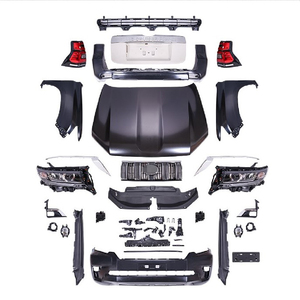Types of CCS to CHAdeMO Adapters
CCS to CHAdeMO adapters are essential devices in the growing electric vehicle (EV) ecosystem. As EV adoption increases globally, these adapters play a crucial role in expanding charging infrastructure accessibility by allowing vehicles with CCS (Combined Charging System) ports to connect to CHAdeMO charging stations.
What is a CCS to CHAdeMO adapter? These devices serve as converters between two major DC fast charging standards, enabling cross-compatibility between different EV charging infrastructures. They're also commonly referred to as CCS to CHAdeMO converters.
Type 1 CCS to CHAdeMO Adapter
This adapter variation is primarily designed for the North American and Japanese markets. It integrates the Type 1 CCS connector (used predominantly in North America) with CHAdeMO technology, enabling EVs with Type 1 CCS ports to utilize CHAdeMO charging infrastructure.
Best for: North American EVs with CCS ports needing to access CHAdeMO stations
Type 2 CCS to CHAdeMO Adapter
Developed for the European and Asian markets, this adapter connects Type 2 CCS (the European standard) to CHAdeMO charging stations. It features enhanced communication protocols to ensure proper handshaking between different charging standards.
Best for: European market EVs requiring access to CHAdeMO charging networks
CCS Combo to CHAdeMO Adapter
This versatile adapter supports vehicles with CCS Combo connectors, offering a flexible solution for both Type 1 and Type 2 CCS standards in regions where CHAdeMO remains prevalent. It features sophisticated communication technology to translate between standards.
Best for: Vehicle fleets operating across multiple regions with different charging standards
Advanced Adapter Generations
| Adapter Model | Key Features | Target Vehicles | Max Power Rating |
|---|---|---|---|
| CCS to CHAdeMO Adapter 1.0 | Basic compatibility, standard cooling | Older EV models (pre-2018) | 50-75 kW |
| CCS to CHAdeMO Adapter 2.0 | Enhanced protocols, improved efficiency | Modern EVs (2018-2021) | 100-150 kW |
| Ultra High-Power Adapter | Advanced cooling, premium materials | High-performance EVs, premium models | 200-400 kW |
| Smart CCS-CHAdeMO Adapter | Integrated diagnostics, app connectivity | Latest-generation EVs (2022+) | 150-200 kW |
Specifications and Maintenance of CCS to CHAdeMO Adapters
Understanding the technical specifications of CCS to CHAdeMO adapters is crucial for selecting the right model for your electric vehicle and ensuring optimal charging performance and safety. Similarly, proper maintenance practices will extend the adapter's lifespan and preserve charging efficiency.
Key Technical Specifications
Modern CCS to CHAdeMO adapters offer power outputs ranging from 50 kW in basic models up to 400 kW in ultra-high-power variants. This specification directly impacts charging speed, with higher-rated adapters delivering significantly faster charging times for compatible vehicles.
These adapters typically support voltage ranges from 200V to 1000V, accommodating the diverse battery architectures found in today's EVs. Premium adapters with wider voltage ranges provide greater flexibility across different vehicle platforms.
The current handling capacity varies between 125A and 500A depending on the adapter model and quality. Higher current ratings allow for faster charging but require robust internal components and effective cooling systems.
Physical dimensions of connectors typically range from 50mm to 75mm in diameter. The connector size must be compatible with both your vehicle's inlet and the charging station's connector to ensure a secure physical connection.
Comprehensive Maintenance Guide
Important: Regular maintenance of your CCS to CHAdeMO adapter is essential for safety, reliability, and optimal performance. Neglecting maintenance can lead to connection issues, slower charging rates, or even electrical hazards.
| Maintenance Task | Frequency | Procedure | Importance |
|---|---|---|---|
| Visual Inspection | Before each use | Check for cracks, wear, loose components, or damage | Critical |
| Connector Cleaning | Weekly | Use compressed air and a soft, dry cloth to remove debris | High |
| Firmware Updates | Quarterly | Check manufacturer website for updates to enhance functionality | Medium |
| Storage | When not in use | Store in a cool, dry place using protective case | Medium |
| Full Diagnostic Check | Annually | Professional inspection of electrical components and safety systems | High |
Pro Tip: When cleaning your adapter, never use water or liquid cleaners directly on the connectors. Instead, use electronic-safe contact cleaners and allow them to dry completely before the next use. This preserves the integrity of the electrical contacts and prevents corrosion.
How to Choose CCS to CHAdeMO Adapters
Selecting the right CCS to CHAdeMO adapter involves careful consideration of several critical factors that affect compatibility, performance, and safety. Whether you're purchasing for personal use or reselling to customers, understanding these key selection criteria will ensure you make an informed decision.
Charging Power Evaluation
The adapter's power rating directly impacts charging speed. Higher-powered adapters (150+ kW) can reduce charging times significantly but come at a premium price point. For daily commuters, a 50-100 kW adapter often provides a good balance of performance and cost.
Key metric: Match the adapter's power rating to your vehicle's maximum charging capability
Compatibility Assessment
Comprehensive compatibility involves checking both vehicle and charging station compatibility. This includes physical connector fit, communication protocol matching, and voltage/current specifications alignment. Manufacturers typically provide compatibility charts for reference.
Verification method: Check vehicle manual and adapter specifications for explicit compatibility confirmation
Selection Factors Chart
| Selection Factor | Importance | What to Look For | Impact on Usage |
|---|---|---|---|
| Build Quality | Critical | Premium materials, solid construction, quality connectors | Affects durability, safety, and long-term reliability |
| Portability | Medium | Weight under 5kg, storage case, manageable dimensions | Determines ease of transport and storage in vehicle |
| Safety Features | Critical | Overheat protection, short circuit prevention, waterproofing | Prevents damage to vehicle and adapter during charging |
| Price | High | Value relative to features, warranty length, brand reputation | Initial investment versus long-term performance and reliability |
| Certification | Critical | UL/CE certification, compliance with charging standards | Ensures safety compliance and proper operation |
Expert Advice: When evaluating price points, consider the total cost of ownership rather than just the initial purchase price. A premium adapter with better build quality and a longer warranty often proves more economical over time, especially for frequent users or commercial applications.
How to DIY and Replace CCS to CHAdeMO Adapter
Whether you're replacing a damaged adapter or simply upgrading to a newer model, the process of installing or replacing a CCS to CHAdeMO adapter is straightforward when following proper procedures. This step-by-step guide covers the essential process while prioritizing safety and proper handling.
Safety Warning: Always ensure both the vehicle and charging station are powered off completely before beginning any adapter replacement procedure. Working with high-voltage charging equipment carries electrical hazard risks if proper precautions aren't followed.
Source a compatible replacement adapter that matches your vehicle's specifications. Verify compatibility with both your vehicle model and the charging stations you intend to use. Purchase from authorized dealers to ensure authenticity and warranty coverage.
Completely shut down your electric vehicle's systems before beginning. Set the vehicle to "park" position, engage any parking brake systems, and ensure the key/fob is removed or the start button is in the fully-off position. Wait at least 5 minutes for internal systems to fully power down.
If the old adapter is currently connected, follow proper disconnection procedures. First disconnect from the vehicle end, then from the charging station end. Handle connectors by their designated grip areas, never by the cables themselves.
Thoroughly examine both the vehicle's charging port and the charging station connector for any signs of damage, debris, or corrosion. Clean the ports if necessary using compressed air and a soft, dry cloth. Never use liquid cleaners directly on electrical connections.
Remove the new CCS to CHAdeMO adapter from its packaging and inspect it for any shipping damage. Remove any protective caps or covers and verify all components are intact. If the adapter has any configuration settings, ensure they match your requirements.
Align the CCS connector properly with your vehicle's charging port, then insert with firm but gentle pressure until it clicks or locks into place. Next, connect the CHAdeMO end to the charging station, ensuring it is fully seated and secured according to the station's locking mechanism.
Verify both connections are secure by gently tugging (don't pull) on the adapter. Check that all locking mechanisms are properly engaged. Look for any indicator lights on the adapter that signal proper connection and ready status.
Power on your vehicle and initiate the charging process following your charging station's standard procedures. Monitor the initial connection phase to ensure proper communication between vehicle and charger. Check that charging begins normally and the expected power delivery is achieved.
Maintenance Reminder: After installation, make a note of the installation date and create a maintenance schedule for your new adapter. Regular inspection and cleaning will significantly extend its usable life and maintain optimal charging performance.
Frequently Asked Questions
No, the CCS to CHAdeMO adapter is specifically designed for vehicles equipped with a CCS charging port. It allows these vehicles to connect to CHAdeMO charging stations, but it cannot be used with vehicles that have different charging port types (like Tesla's proprietary connector without an additional adapter). Always check your vehicle's specifications and the adapter's compatibility list before purchasing.
When used correctly with a compatible system, a high-quality CCS to CHAdeMO adapter should maintain charging efficiency close to direct connection speeds. However, some factors may slightly impact performance:
- Adapter quality and rating (lower-quality adapters may introduce more resistance)
- Power limitations of either the vehicle or charging station
- Temperature conditions (extreme heat may trigger thermal throttling)
Premium adapters with proper cooling systems and high-quality connectors typically minimize any potential speed reduction.
Yes, certified CCS to CHAdeMO adapters are designed with comprehensive safety features to protect both the vehicle and the charging station. These include:
- Overcurrent protection circuits
- Temperature monitoring and automatic shutdown
- Insulation monitoring
- Proper grounding and shielding
- Weather-resistant housing for outdoor use
For maximum safety, only purchase adapters from reputable manufacturers that carry proper certifications (UL, CE, etc.) and follow all usage guidelines provided by the manufacturer.
Yes, some advanced CCS to CHAdeMO adapters support bi-directional power flow, enabling vehicle-to-grid (V2G) or vehicle-to-load (V2L) functionality where supported. This allows the vehicle to not only receive charge but also discharge energy back to the grid or power external devices. However, this capability depends on:
- The adapter specifically supporting bi-directional operation
- Your vehicle supporting power export functionality
- The charging station supporting bi-directional power flow
- Local regulations permitting such operations
Check the adapter specifications and your vehicle's capabilities to confirm bi-directional support.
While current CCS to CHAdeMO adapters work with today's charging infrastructure, the long-term future of these adapters depends on charging standard evolution. Several factors influence future compatibility:
- CCS is becoming increasingly dominant globally, with CHAdeMO usage declining in some markets
- Next-generation charging standards (like the proposed Megawatt Charging System) may eventually supersede both current standards
- Software updates may extend compatibility for some adapter models
Premium adapters from established manufacturers are more likely to receive firmware updates extending their useful lifespan as standards evolve incrementally. For most current EV owners, today's high-quality adapters should remain functional through the typical ownership period of their vehicles.
































































































































































































































































 浙公网安备 33010002000092号
浙公网安备 33010002000092号 浙B2-20120091-4
浙B2-20120091-4